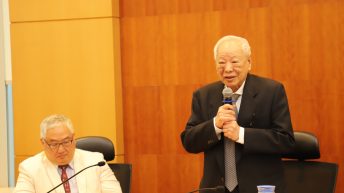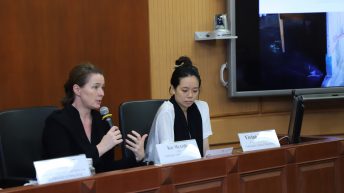Date:15Feb 2019
Sexual Orientation and Fundamental Rights – The Emergence of Constitutional and Supranational Standards in Europe? by Judge Lech Garlicki (Former Judge of European Court of Human Rights)
The problems of sexual orientation entered the realm of fundamental rights relatively late. The traditional position, based on – moral and legal – condemnation of gay and lesbian relations was not challenged head on until the end of the 1960s. Subsequent developments in constitutional and international law on fundamental rights have moved from depenalization to sectoral protection against discrimination and, ultimately, to full (or partial) legal recognition of same-sex couples. Whereas the former two stages have already been completed in many European countries, the latter is still waiting for the elaboration of universal standards.
Nevertheless, gay and lesbian rights are now everywhere discussed from the perspective of fundamental rights, i.e., standards imposed by national constitutions and by the international (European) law on human rights. It opens wide room for adjudication before domestic constitutional/supreme courts as well as before different international and supranational courts. Two areas of that adjudication deserve some comments.
First, there is still no uniformity in the form and nature of legal recognition of same-sex couples. Although, nowadays, the majority of European countries offer some arrangement (same-sex marriage or/and different forms of “civil partnerships”), it remains unclear whether there is a constitutional right (claim) to such recognition. In Europe, unlike in the United States, most constitutional/supreme courts have waited for legislative decisions and abstained from “taking law into their own hands”. Furthermore, neither of the supranational courts (the European Court of Human Rights and the Court of Justice of the European Union) have addressed the question in an unequivocal manner.
Secondly, courts seem to have some problems reacting to situations where the prohibition of discrimination based on sexual orientation (which is now ensured on the legislative level) collides with the fundamental rights of third persons. In particular, freedom of religion is invoked as a justification to deny services to same-sex couples (the recent “cake-cases” in the U.S. and the U.K.). The courts are not yet ready to establish any clear standards in that area.
Judge Lech Garlicki is a visiting professor at HKU and a renowned constitutional law specialist. Since 1988 he has been a professor at the University of Warsaw. He was a member of the Warsaw Bar from 1980 to 1993 and a judge of the Constitutional Court of the Republic of Poland from 1993 to 2001. From 2002 to 2012 he was a judge of the European Court of Human Rights. He is one of the Founding members of the European Law Institute, vice-president of the International Association of Constitutional Law (2009-2018), author of over 300 publications in various languages and has lectured at numerous universities in Asia, Europe, the USA and Israel.




